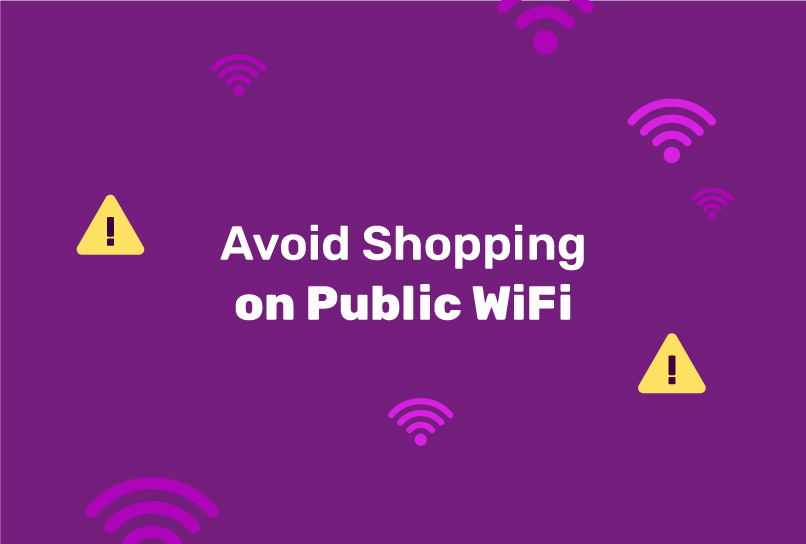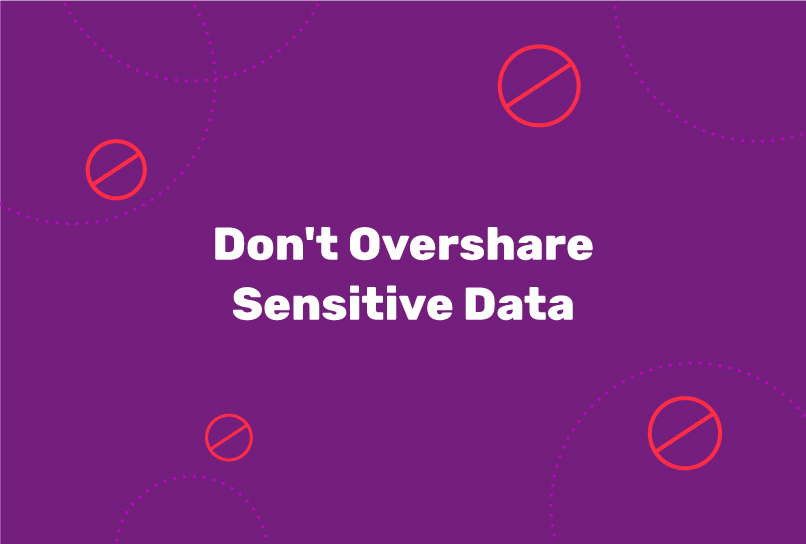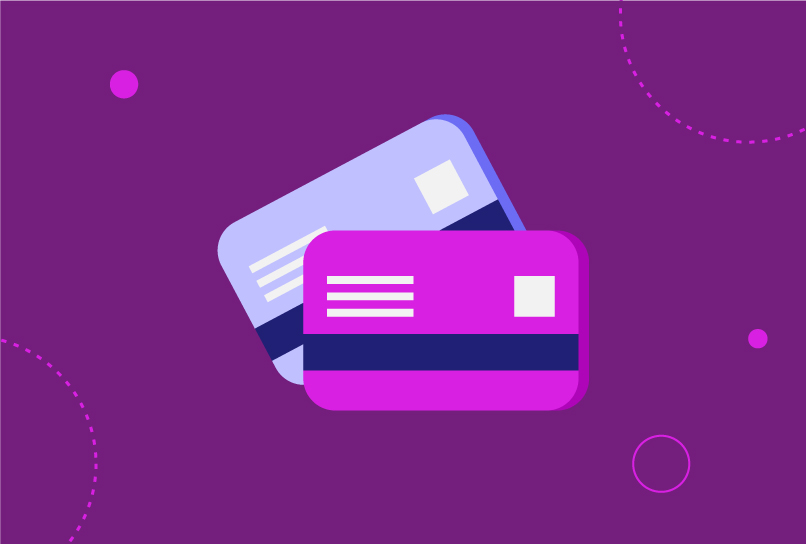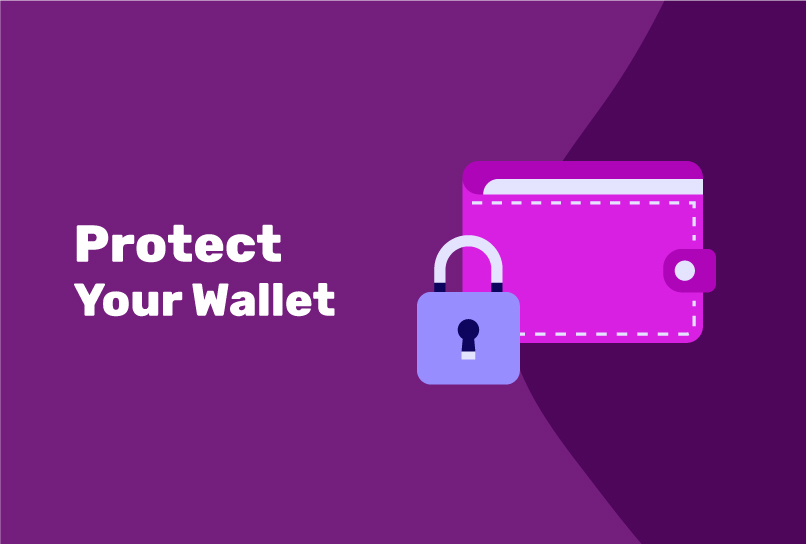Welcome to the thriving realm of online shopping, where renowned platforms like Amazon, eBay, Alibaba, and a plethora of other digital marketplaces connect consumers with a world of products and possibilities.
But as the online shopping industry continues to soar, with projected eCommerce sales reaching a staggering $58.74 trillion by 2028, therefore failing to protect your payment information can result in serious consequences, including huge financial loss and identity theft. No exaggeration – you could go from shopping for a T-shirt online to losing your entire life savings in minutes. So pay attention.
Without further ado, let’s delve right in. Below are 13 essential practices to ensure a safe and secure online shopping experience:
Use only Well-Known Retailers
When it comes to online shopping, one of the most critical practices for ensuring the safety of your wallet is to use only well-known retailers. Shopping with established and reputable retailers provides you with an added layer of security and peace of mind.
Why Trustworthy Retailers Matter
Here are some reasons why you should stick to reputable retailers only:
They need to maintain reputable standards
Well-known retailers have a reputation to uphold, meaning they are more likely to invest in robust security measures to protect their customer’s sensitive information. These retailers understand the importance of maintaining trust and loyalty among their customer base, and they take the necessary steps to safeguard their customers’ data.
They have experience and expertise
By shopping with well-known retailers, you can benefit from their expertise and experience in securely handling online transactions. These retailers often employ advanced encryption technologies and secure payment gateways to protect your payment information.
Encryption ensures that your data is scrambled and unreadable to unauthorized parties, reducing the risk of your information being intercepted or compromised during transmission.
They are serious about data privacy
Reputable retailers have well-established data privacy policies and terms of service that outline how they handle and protect customer data.
They are committed to adhering to industry standards and best practices regarding data security. This includes implementing measures to prevent data breaches, regularly updating their security systems, and conducting routine security audits.
They have great customer support
Well-known retailers also tend to have a strong customer support system in place. Their support teams are well-trained and knowledgeable, ensuring that any concerns or questions you may have regarding security or the protection of your personal information are addressed effectively.
They provide quality products
Shopping with well-known retailers often means you can benefit from reliable product quality and customer reviews. Established retailers have a reputation to maintain and strive to deliver high-quality products and services to their customers.
While exploring lesser-known retailers for potentially better deals may be tempting, the risk of compromising your security increases significantly.
Unknown or suspicious retailers may lack the necessary security measures, making your personal and financial information vulnerable to unauthorized access. Such retailers may also be more likely to engage in fraudulent activities, such as selling counterfeit products or engaging in identity theft.
Be Wary of Deals that Seem Too Good to be True
When shopping online, it’s crucial to keep your guard up and be wary of deals that appear too good to be true. While snagging an incredible discount is tempting, it’s essential to exercise caution. Scammers can often use deals that seem excessively cheap to deceive unsuspecting shoppers.
These dubious offers may lead to counterfeit products, poor-quality items, or compromise your personal information.
To stay safe, research the seller, read customer reviews, and compare prices across different platforms. Remember, it’s better to prioritize your security and avoid falling victim to fraudulent schemes, even if it means passing up on seemingly unbelievable deals.
Avoid Shopping on Public WiFi

When it comes to online shopping, one practice that cannot be emphasized enough is to avoid shopping on public WiFi networks. While it may be tempting to purchase while sipping coffee at your favorite café or waiting at an airport, public WiFi poses significant security risks.
Understanding the Risks of Public WiFi
Here are some of the inherent risks of using public WiFi:
They are insecure
Public WiFi networks are often unsecured and susceptible to eavesdropping, where malicious individuals can intercept your sensitive information. Hackers can easily exploit vulnerabilities in these networks to gain unauthorized access to your personal and financial data.
Your data is at risk
When connected to public WiFi, your browsing activities, including your login credentials and payment information, can be easily captured by cybercriminals. This puts you at risk of identity theft, unauthorized transactions, and other financial losses.
Tips for Safe Online Shopping on the Go
Here are some tips to ensure that you shop online safely on the go:
Use a secure and private internet connection
This includes your home WiFi network or a trusted personal mobile hotspot. These networks typically have stronger security measures in place, reducing the chances of your data being intercepted.
Don’t enter your sensitive data
If you must use public WiFi for essential tasks, refrain from entering sensitive information, such as credit card details or passwords, unless you use a trusted virtual private network (VPN). A VPN encrypts your internet traffic, providing an added layer of security even on unsecured networks.
Use Strong and Unique Passwords
You’ve probably heard it one too many times at this point, but the importance of strong and unique passwords cannot be overstated when it comes to online security, especially in the realm of online shopping. A strong password is a barrier against potential cyber threats and helps safeguard your personal and financial information.
Tips for Creating a Strong Password
Follow these tips to help you create a strong and secure password:
Complexity is key
When creating passwords for your online shopping accounts, making them unique, complex, and difficult to guess is important. Avoid using obvious information such as your name, birth date, or sequential numbers. Instead, opt for a combination of uppercase and lowercase letters, numbers, and special characters.
The longer, the better
The length of your password is also significant, so, aim for a minimum of eight characters, but the longer, the better. Longer passwords are generally more resistant to brute-force attacks, where hackers systematically attempt different combinations to crack your password.
Avoid using the same password for different accounts
It’s crucial to use different passwords for each online shopping account you have. Reusing passwords across multiple accounts can lead to a domino effect if one account is compromised. By diversifying your passwords, you mitigate the risk of multiple accounts being breached simultaneously.
Use a password manager
About 30% of internet users use password managers. These tools securely store your passwords and can generate complex passwords for you. They also offer the convenience of auto-filling login credentials, making using unique and robust passwords for each account easier.
Change your passwords often
Remember to change your passwords periodically and immediately if there is a security breach or if you suspect unauthorized access to your account. Regularly updating your passwords adds an extra layer of protection to your online shopping endeavors.
Assess the Site and Connection Security Before Shopping
Before engaging in online shopping, assessing the site and connection security for your own protection is vital.
Look for the padlock symbol and “https://” in the website’s URL, indicating that the site uses encryption to secure your data during transmission. Verify the site’s reputation, read reviews, and check for security certifications or trust seals.
Be cautious if the site requests excessive personal information. Assessing site and connection security ensures that your sensitive information remains protected and reduces the risk of falling victim to fraudulent activities or data breaches.
Don’t Overshare Sensitive Data

When engaging in online shopping, being cautious and avoiding oversharing sensitive data is essential. While providing necessary information such as your name, address, and payment details is often required for completing a purchase, be vigilant about sharing additional unnecessary data.
Tips to help you stay alert always
When shopping online, you should always be aware of the following:
- Be careful if a website or seller requests sensitive information. Legitimate retailers typically don’t need your Social Security number, driver’s license details, or excessive personal information.
- Embrace the principle of least privilege. Always provide the bare minimum required info, and if a website requests an excessive amount of data, it’s wise to proceed with caution and question the legitimacy of their intentions.
- Digital channels such as emails are just as susceptible. Be cautious about sharing your payment information through email, social media, or unsecured messaging platforms.
Secure Your Device with an Antivirus Tool
Securing your device with an antivirus tool is a crucial step in ensuring the safety of your online shopping experience. Antivirus software helps protect your device from malicious software, such as viruses, malware, and spyware, that can compromise your security.
Why having an antivirus tool is pivotal
Here are some reasons why an antivirus solution is essential for online shoppers:
- Use an antivirus tool. By installing an antivirus tool on your device, you create a defense mechanism and provide real-time protection against known and emerging threats.
- To ensure maximum protection, keep your antivirus software up to date. This helps it stay equipped with the latest threat definitions and security patches.
Use Mobile Apps
Using mobile apps for online shopping can enhance your convenience and security. Many reputable retailers offer dedicated mobile apps to provide a more secure shopping experience.
Mobile apps often have more advanced built-in security features, such as biometric authentication and secure payment options like Apple Pay or Google Pay. These features add an extra layer of protection to your transactions. Moreover, mobile apps allow you to receive personalized offers, notifications, and updates, making staying connected with your favorite retailers easier.
Also, ensure that you download apps from trusted sources like official app stores and regularly update them to ensure you have the latest security patches.
Embracing mobile apps can streamline online shopping and provide a secure and enjoyable experience.
Be Wary of Email Scams
Regarding online shopping, being vigilant and wary of email scams is important. With an estimated 3.4 billion phishing emails sent daily, cybercriminals regularly use phishing emails to trick unsuspecting individuals into revealing sensitive information or clicking on malicious links.
These emails may appear to come from well-known retailers or financial institutions, but they often contain subtle signs of fraud, such as grammatical errors or unfamiliar email addresses.
To protect yourself, be cautious of unsolicited emails asking for personal or financial details. Avoid clicking on suspicious links or downloading attachments from unknown senders.
Remember, reputable companies will never ask for sensitive information via email. Stay alert and trust your instincts to avoid falling victim to email scams while enjoying a safe online shopping experience.
Use Credit, Rather Than Debit Cards

Regarding online shopping, using credit cards instead of debit cards is prudent for several reasons. While both cards offer convenience, credit cards provide extra protection and security.
Here are some advantages of using credit cards over debit cards
Fraud-protection capabilities
Credit cards offer built-in fraud protection measures that are not always present with debit cards. If unauthorized transactions occur on your credit card, you can dispute them with your credit card issuer, and you won’t be liable for those charges during the investigation.
If fraudulent transactions occur on your debit card, your bank account could be directly affected, and recovering the funds may take more time and effort.
Advanced security features
Credit cards often have robust security features, such as advanced encryption and fraud detection systems, which provide an additional safeguard against potential cyber threats.
The potential for rewards
Another advantage of using credit cards is the opportunity to earn rewards or cashback on your purchases. Many credit cards offer various perks, including loyalty points, travel miles, or cash-back incentives, which can provide additional value when shopping online.
Note that using credit cards responsibly and paying off the balance in full each month is important to avoid accruing high-interest charges.
Vet Retailers that are New To You
While it can be exciting to discover new and promising businesses, exercising caution is vital to protect your wallet and personal information. When encountering new retailers, it’s essential to vet them thoroughly before making any online purchases.
Here’s how to do it:
- Look for customer reviews, ratings, and feedback from reputable sources. A lack of transparency or vague details should raise red flags.
- Verify the retailer’s reputation and legitimacy. Scammers often lack a genuine online presence or have a trail of negative reviews and complaints.
- Reputation and certification are key. Check if the retailer has proper certifications or affiliations with trusted organizations.
- Direct contact is important. Consider reaching out to the retailer directly with any questions or concerns to gain insight into their reliability and customer service.
Ultimately, trusting your instincts is essential. If something feels off or too good to be true, it’s wise to err on the side of caution and explore alternative, more established retailers.
Track Your Account Statements
Regularly monitoring your bank and credit card statements is essential for safe online shopping.
Also, review your statements for unauthorized transactions or suspicious activity and immediately report any discrepancies to your financial institution. By staying vigilant and proactive, you can promptly detect and address fraudulent charges, minimizing the potential impact on your finances.
Secure Your Online Shopping with an Anti-Detect Browser – Incogniton
By harnessing the capabilities of a reliable anti-detect browser, you get to maintain the security and privacy of your online shopping activities.
One of the most efficient ways to secure online shopping is to use Incogniton, an anti-detect browser with advanced security features that help users surf the internet without fear of third-party breaches.
Incogniton is equipped with browser fingerprinting protection technology that makes it impossible for remote hackers to track online shoppers’ digital fingerprints. The browser limits data collection and minimizes the chances of being identified as a single user operating multiple accounts.
Additionally, browsing details are stored safely online, meaning that there’s no chance that user data is being secretly used by a third party for malicious purposes. As such, every time you shop online, you can do so rest assured that your data is safe.
Conclusion
As the popularity of online shopping continues to grow, it’s crucial to prioritize the protection of your personal and financial fortress.
By adhering to the 13 must-follow practices we outlined – including using reputable retailers, avoiding suspicious deals, securing your device, and ultimately, using an anti-detect browser – Incogniton, you get to enjoy a safe and secure online shopping experience.
Remember to stay informed about the latest security threats and adapt your practices accordingly. Adopt these measures and enjoy the convenience of online shopping with peace of mind.
Anti-Detect Browser for Multi-Account Management
Manage unlimited virtual profiles for easy multi-account management. Safe and anonymous. Ideal for teams and individuals. Download and try for free now!
